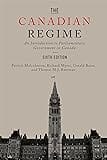The Canadian Regime
Published:
The Canadian Regime

Metadata
- Author: Patrick Malcolmson, Richard Myers, Gerald Baier, Tom Bateman
- Full Title: The Canadian Regime
- Category: #books
Highlights
- the voters do not directly elect either the prime minister or the ministers of the cabinet; through a complex process called “responsible government,” those officers are selected by our elected representatives. Parliamentary democracy is thus in some sense the most indirect of indirect democracies.1 (Location 335)
- It is essential that students of the Canadian regime learn to work with CA 1867 and CA 1982, (Location 659)
- Under the terms of Confederation, Canadians were to remain subjects of the British Crown; their foreign policy was to be directed by the British government; the Judicial Committee of the Privy Council, Britain’s highest court, would be the final court of appeal for Canadian legal disputes; and Britain would maintain control of Canada’s Constitution. (Location 673)
- the status of CA 1867 as Canada’s supreme law depended on the fact that it was an act of our colonial mother country and on the fact that we Canadians, being less than fully independent of her, had no right to disobey her laws. (Location 679)
- The court held unanimously that the Constitution does not permit unilateral declarations of independence but went on to say that if a “clear majority” of Quebeckers voted in favour of a clear proposal for secession, that would confer on the rest of Canada an obligation to enter into negotiations for separation. (Location 863)
public: true
title: The Canadian Regime longtitle: The Canadian Regime author: Patrick Malcolmson, Richard Myers, Gerald Baier, Tom Bateman url: , source: kindle last_highlight: 2019-10-22 type: books tags:
The Canadian Regime

Metadata
- Author: Patrick Malcolmson, Richard Myers, Gerald Baier, Tom Bateman
- Full Title: The Canadian Regime
- Category: #books
Highlights
- the voters do not directly elect either the prime minister or the ministers of the cabinet; through a complex process called “responsible government,” those officers are selected by our elected representatives. Parliamentary democracy is thus in some sense the most indirect of indirect democracies.1 (Location 335)
- It is essential that students of the Canadian regime learn to work with CA 1867 and CA 1982, (Location 659)
- Under the terms of Confederation, Canadians were to remain subjects of the British Crown; their foreign policy was to be directed by the British government; the Judicial Committee of the Privy Council, Britain’s highest court, would be the final court of appeal for Canadian legal disputes; and Britain would maintain control of Canada’s Constitution. (Location 673)
- the status of CA 1867 as Canada’s supreme law depended on the fact that it was an act of our colonial mother country and on the fact that we Canadians, being less than fully independent of her, had no right to disobey her laws. (Location 679)
- The court held unanimously that the Constitution does not permit unilateral declarations of independence but went on to say that if a “clear majority” of Quebeckers voted in favour of a clear proposal for secession, that would confer on the rest of Canada an obligation to enter into negotiations for separation. (Location 863)